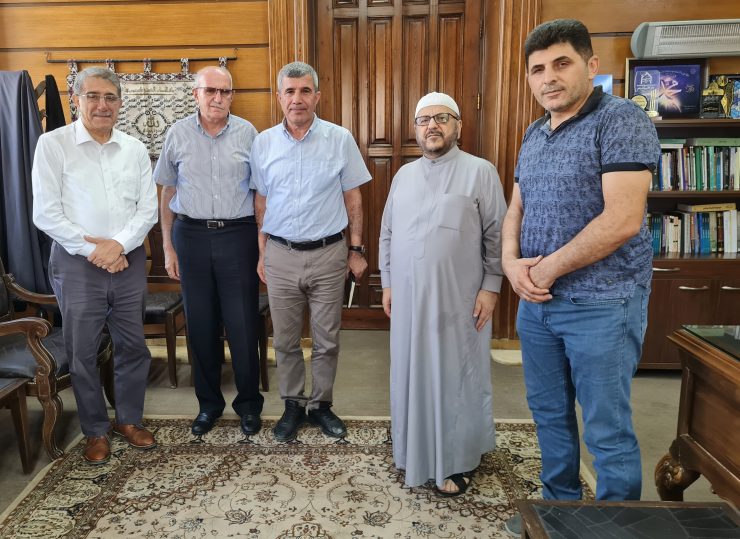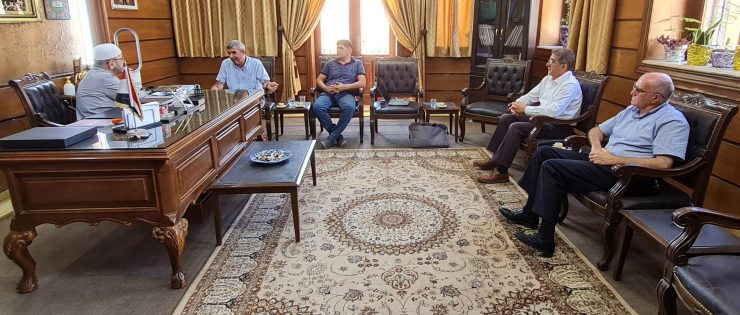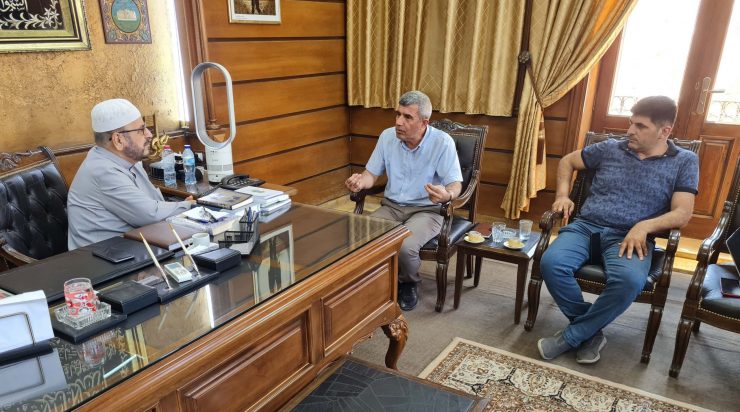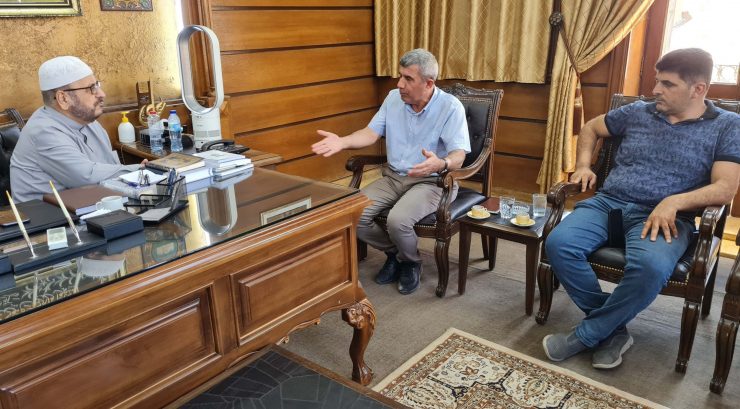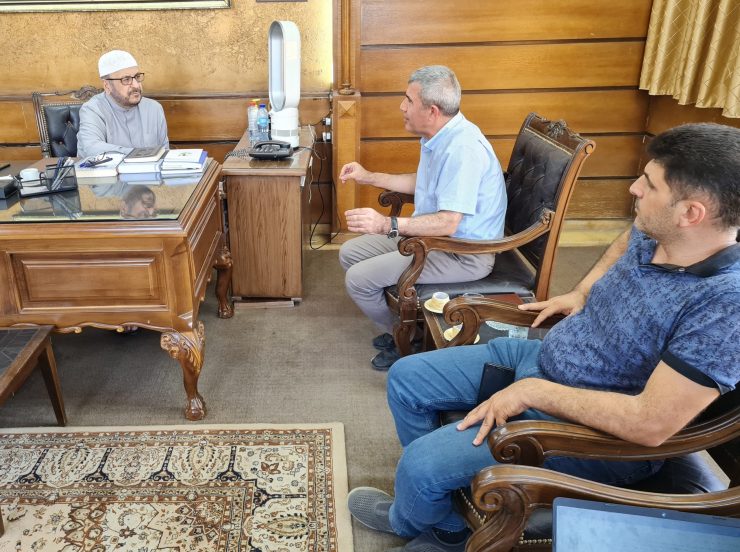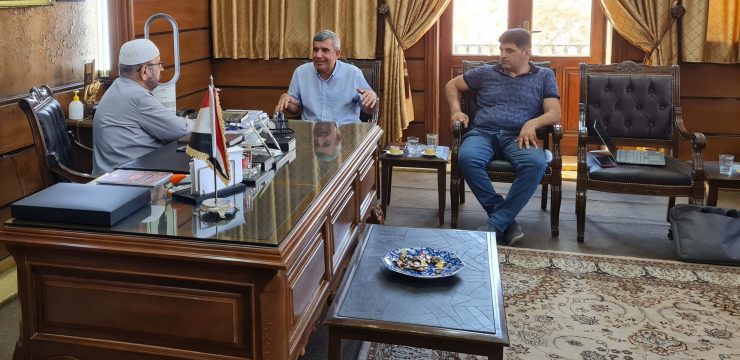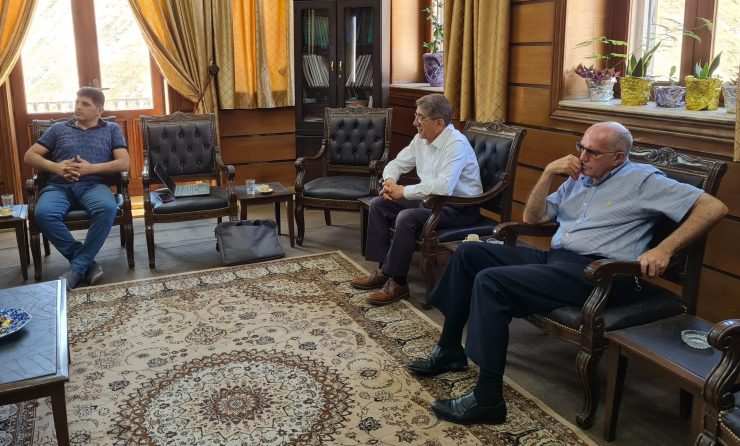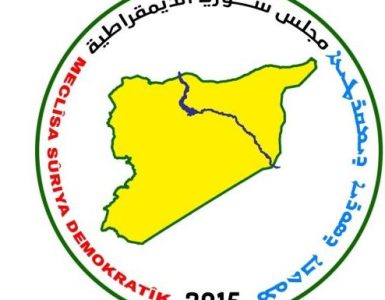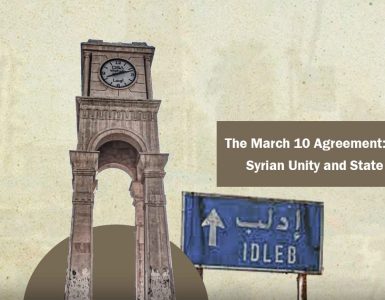His Eminence Sheikh Dr. Mahmoud Akkam, Mufti of Aleppo and the Chairman of Muftis’ committees in Aleppo and all Syrian governorates, received Hassan Muhammad Ali, the head of the Relations Bureau and a member of the Executive Body of the Syrian Democratic Council, at the House of Fatwa and Religious Teaching located in Old Aleppo, in the presence of both, the former adviser to the Mufti of Syria, Basil Qas Nasrallah, and Dr. Abdul Qader Hariri, a professor at Aleppo University.
The head of the Relations Bureau of the SDC, Hassan Muhammad Ali, spoke about the project of the Syrian Democratic Council and its political vision for resolving the Syrian crisis.
He also spoke about the council’s efforts and its open approach to dialogue with various Syrian political, social and religious actors, considering that activating dialogues in Syria is necessary to strengthen national cohesion and enhance the public interest of the country, stressing that dialogues are able to address the outstanding issues and existing disagreements, and they contribute to reaching sustainable and fair resolutions.
He also spoke about the important role that clerics play in ending conflicts, promoting peace and tolerance in societies, and enhancing relations among different groups and religious sects in Syria by communication and common understanding, as well as their effective role in influencing the political path by establishing a national approach that contributes to resolving the crisis.
For his part, His Eminence Mufti of Aleppo Sheikh Mahmoud Akkam spoke about the importance of preserving the rights of the components within the framework of Syria’s unity of territories and people, taking into account the specificity of religions, nationalities and components.
He pointed out enhancing the culture and discourse of love and tolerance and rejecting the discourse of hatred in Syria, which is necessary to rebuild society and achieve civil peace.
He affirmed that the Syrian people appreciate very much the sacrifices of people of northeastern Syria in fighting the terrorist organization “ISIS” and “al-Nusra Front”, and their contribution to this day at high levels in combating terrorism.
At the end of the meeting, both sides stressed the need to achieve peace and resolve the Syrian conflict and avoid deepening it further, by relying on a comprehensive set of efforts, including clerics, to overcome differences and unite to build a better future for Syria.


